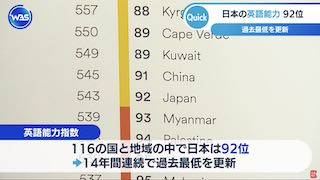Oct 20 (News On Japan) - The Japanese passport is one of the strongest in the world, ranked only second to Singapore.
Despite this, many do not entertain the idea of traveling abroad for any reason, including education.
For the few who ever consider traveling abroad, notably for the sake of education, they are sure to be greeted with numerous culture shocks and what every international student fears most, arrest!
What is a student visa?
To study abroad, a foreign student will typically need a student visa. A student visa is an immigration document issued to students by a country to allow international students to study within its borders for a certain period.
The specific requirements and procedures for obtaining a student visa vary depending on the country.
It comes with certain restrictions the holders are expected not to violate. It does not necessarily grant foreign students the same rights and privileges as citizens. For example, you may be unable to participate in the election of your host country when in the country with a student visa.
Japanese students are increasingly returning to study abroad. According to a study by the Japan Student Services Organization (JASSO), 58,162 Japanese students were studying abroad as of 2022. This signifies an over 400 percent increase when compared with the statistics in 2021.
Most of these students study in the United States (11,880), followed distantly by Canada (6,735) and thirdly, Australia (6,187).
While student visas are primarily intended for academic purposes, they do not provide immunity from arrest for breaking the law.
This does not necessarily have to be when you commit a crime. Individuals on a student visa can be arrested for violating immigration laws or not adhering to the visa conditions.
It is not unusual for international students to be arrested for minor misdemeanors such as drunk driving or drug possession.
This, however, can be devastating, considering you are far away from home. If you are arrested while on a student visa, it is crucial to remain calm and follow the legal procedures.
In America, you need to “post bail” (a fine that acts as deposit in order to make sure you appear at your court date). Bail can vary wildly, for first time offenders of DUI, this might be as little as $1000.
“Something more aggravating like a bar fight then ends with someone injured could be over $10,000. If you don’t have that amount of cash (who does while traveling), a bail bondsman covers that amount for only 10% down from the offending party. It is similar to a temporary loan until you appear at your court date,” says Florida’s fianzas.com, a bail bond service.
It is crucial to know that getting arrested is different from being convicted of a crime. However, whenever an arrest is made, then there is a high possibility there will be a charge against you.
Only a court of law can convict anyone arrested. Meanwhile, when the charges against you are dropped, it is impossible to be convicted for them.
Understand your rights
Avoid making any incriminating statements during your arrest. Most countries' law permits you to remain silent and request a lawyer.
For instance, when arrested for a DUI in the United States, you do not have to answer the police questions about how much alcohol you consumed or where you have been. Being a non-native speaker of English, the legal jargon and the context of the officer’s questions can be confusing. Your answers may be manipulated and used against you in a court of law.
Contact the nearest embassy
As an international student, studying abroad can be lonely. Getting arrested can be worse. Request that the closest embassy be notified of your arrest. Some countries will inform the embassy regardless of your wishes.
The embassy can help notify your family of your predicament and also offer assistance as much as they are legally permitted, notably by ensuring you are treated fairly in court.
The embassy may also provide you with a brochure containing the legal rules and procedures that apply in the country where you have been arrested.
Get a lawyer
As an individual on a student visa, you will need two lawyers if you are arrested ― an immigration lawyer and a criminal lawyer.
An immigration lawyer will help dissect the situation to assess the possible impact on your visa status. Some crimes may result in the revocation of your student visa, thereby your deportation.
A criminal lawyer will help ensure you are not convicted by proving your innocence or getting you a less severe punishment for your crime.
Notify your school
Notify your designated school official about the arrest. Like the embassy, they can offer support and guidance on how to navigate the situation.
Do not try to hide the arrest from the school, such as if it happened off-campus. It can result in getting punished twice for the same crime.
Like crimes committed on campus, you may be asked to appear before a disciplinary committee. Even when you do not report your arrest to the school, the law enforcement agency may do.
This is necessary when the accused may pose a significant risk to other students. For instance, a university may get sued for allowing a student accused of sexually assaulting another student to remain on campus. Typically, the school will suspend the suspect until a court verdict is pronounced, after which it then decides on how to discipline the student, maybe by expelling them.















